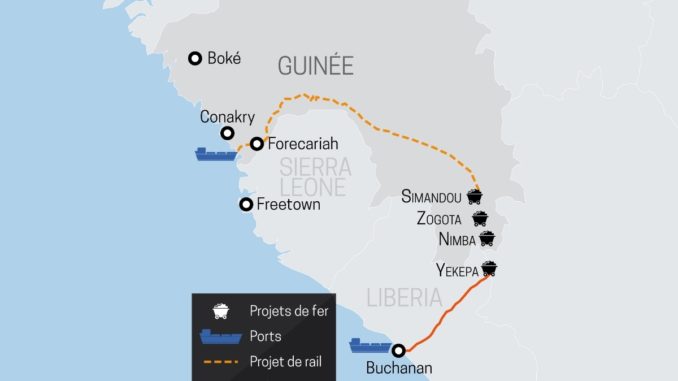
Guinea wants to have a say in the development of the huge Simandou iron deposit in the southeast and, in the long term, to have a say in the price of iron or bauxite on the markets, government leader Mohamed Béavogui said.
The head of the ruling junta, Colonel Mamady Doumbouya, has ordered a halt to all activity at Simandou, one of the world’s largest iron deposits, but also a sea serpent.
Mining has been hampered for years by disputes over mining rights, suspicions of corruption and the scale of investment required in a landlocked region and a country cruelly lacking in infrastructure.
Simandou Blocks 3 and 4 are owned by Anglo-Australian Rio Tinto, Chinese Chinalco and, to a lesser extent, the Guinean state. They are in the exploratory phase.
Blocks 1 and 2 were awarded in 2019 to the Société minière de Boké (SMB), a consortium formed by Singaporean shipowner Winning Shipping, Chinese aluminum producer Shandong Weiqiao, the Yantai Port Group and the Guinean transport and logistics company United Mining Supply.
The military, which came to power by force in 2021, was quick to reassure the foreign partners that the agreements made would be respected.
The head of the government installed by the military declared that stopping activities at Simandou was only a “small pause” and that there was no question of renegotiating the agreements.
According to experts, Guinea may have the world’s largest untapped reserves of high-grade iron, among other considerable natural and mineral resources (bauxite, gold, diamonds, water capital).
But these resources benefit few Guineans themselves, and the country remains very poor.
“We are the world’s largest producer of bauxite today, so the price of bauxite passes through Guinea and we must have a say and there must be benefits for our people,” noted the head of government.
